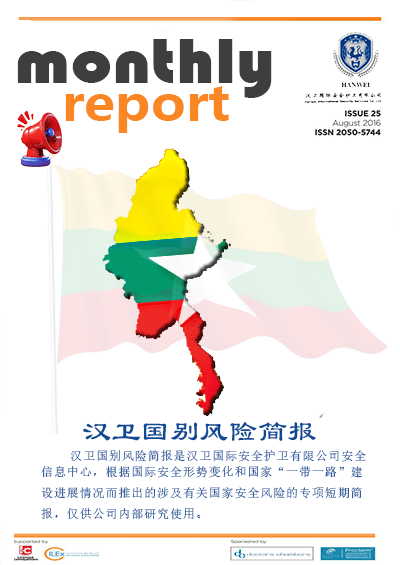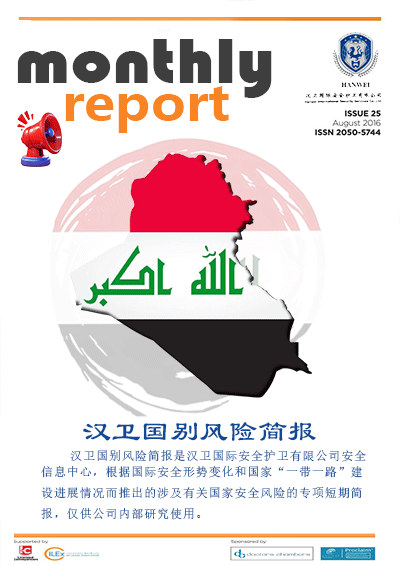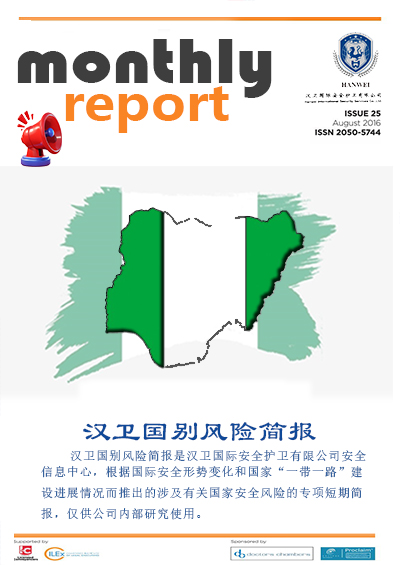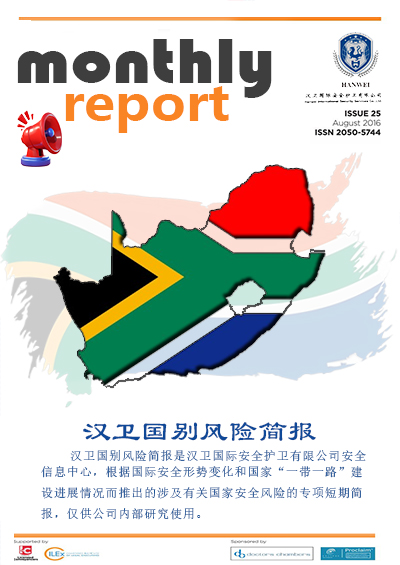Iraq Security Situation Review September
Researcher No. 006
According to monitoring reports from Hanwei International's security officers in Iraq and related media coverage, we have documented approximately 150 security incidents (incomplete statistics), among which terrorist attacks, bombings/explosions, and drone strikes had significant social impact this month. This report primarily analyzes major social security incidents that have substantial societal impact and may threaten the lives and property of Chinese citizens in Iraq, serving as a warning: Safety first when abroad!
Hanwei International analysis suggests that tensions in the Middle East have triggered chain reactions, with Iraq's domestic and external unstable factors continuing to increase. External conflicts have potentially exacerbated internal political factional and religious contradictions in Iraq. The controversial "Personal Status Law" in Iraq's parliament and Iraq's "Watergate scandal" have sparked significant domestic and international debate; a U.S.-Iraq troop withdrawal agreement has been reached while terrorist attack risks persist; recent escalations in conflicts between Israel and Lebanon's Hezbollah have spilled over into Iraq, with Iraqi militia groups strongly condemning Israel and its ally the U.S., taking a series of actions. Meanwhile, frequent explosions in Iraq pose serious threats to public safety. From September 17-18, 2024, communication equipment (mainly pagers, walkie-talkies, and wireless devices) exploded in multiple locations across Lebanon, raising Iraq's concerns about cyber attacks (see Figure 1).
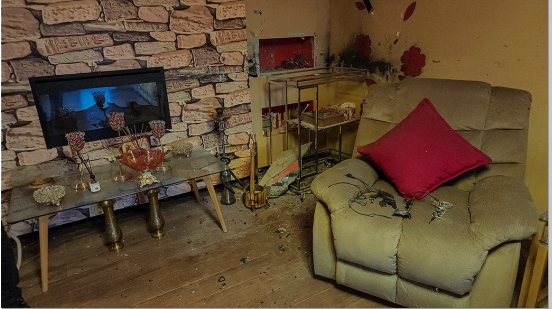
Figure 1 Wireless Communication Equipment Explosion Scene
First, two major political "issues" continue to ferment, putting the Sudani government under significant controversy.
On September 2, Iraq's parliament media office announced that the House of Representatives would convene on the 3rd to conduct a second reading of the "Personal Status Law" which had passed first reading last month. Iraq's current Personal Status Law, enacted in 1959, sets the marriage age at 18 and is considered a model for women's rights in the Middle East. However, with rising religious influence, the proposed amendment would lower the legal marriage age for girls to 9 and base marriage and family matters on Sunni and Sharia rulings. This draft law has sparked nationwide protests (see Figure 2), with protesters viewing it as a severe violation of women's rights and excessive expansion of religious authority threatening the nation's legal unity. A major wiretapping scandal exposed political corruption in Iraq's top intelligence agency, originating from Prime Minister Sudani's office. On August 28, an investigative report revealed large-scale political surveillance operations conducted by Sudani's close associates targeting senior Iraqi officials. Since appointing his relative Ahmed Sudani as acting head of Iraq's National Intelligence Service (INIS), the agency's politicization has worsened, with this scandal exposing a political crisis so shocking that even corruption-weary politicians and citizens were stunned.
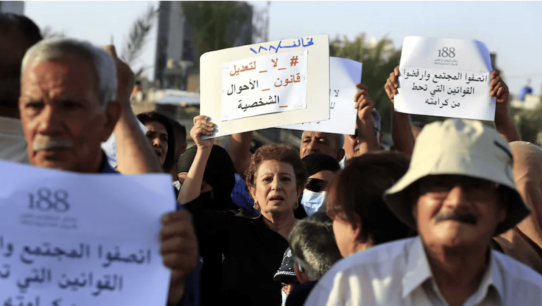
Figure 2 Protests in Baghdad Streets
Second, will the U.S.-Iraq troop withdrawal agreement affect counterterrorism efforts in Iraq?
On September 27, 2024, after coordination, the U.S. and Iraq reached a new withdrawal agreement with phased implementation: Phase 1 (by September 2025) withdraws some troops from Baghdad and western Iraq; Phase 2 (by end of 2026) reduces forces in Erbil; post-2026 maintains a small advisory contingent supporting operations in Syria. Meanwhile, multiple terrorist attacks occurred in Iraq this month. Security sources reported on September 3 that an IED explosion in Busayrah's Qara Hills killed the 8th Mechanized Division's intelligence chief and two soldiers. On September 10, an explosion in a tuk-tuk near Baghdad's Shula district checkpoint killed the driver and injured three including a soldier. From September 17-18, communication equipment explosions across Lebanon (mainly pagers and radios) caused 39 deaths and 3,000 injuries by September 21, raising Iraq's concerns about similar cyber-enabled attacks.
Third, Middle East tensions spill into Iraq as armed groups escalate actions against Israel.
Iraq's "Islamic Resistance" militia launched frequent attacks in late September: On September 22, drones and cruise missiles targeted northern/southern Israel and a West Bank base; September 23 saw drone strikes on Golan Heights; September 25 attacked Eilat port (2 injuries); September 27 fired cruise missiles and drones at Golan targets. U.S. facilities in Iraq were also attacked: On September 10, the U.S. Embassy logistics center near Baghdad Airport was hit (no casualties). On September 27, Israel's airstrike on Hezbollah's Beirut headquarters killed leaders including Hassan Nasrallah. On September 28, hundreds of Shia protesters gathered near Baghdad's Green Zone attempting to breach the U.S. Embassy in anger over Nasrallah's assassination.
Hanwei International analysis suggests Middle East tensions have triggered chain reactions, increasing Iraq's instability.
External conflicts may exacerbate Iraq's internal political/religious divisions, with the controversial "Personal Status Law" and wiretapping scandal sparking major debates; the U.S.-Iraq withdrawal agreement coincides with persistent terrorist risks; Israel-Hezbollah conflict spillover has prompted Iraqi militias to condemn Israel/U.S. actions while domestic explosions threaten public safety. Lebanon's September 17-18 communication equipment explosions raised Iraq's cyber attack concerns.
Recommendations for Chinese entities/individuals in Iraq:
1. Monitor political developments and prepare accordingly. The "Personal Status Law" and wiretapping scandal have drawn significant attention: The proposed law amendment has faced strong opposition from women's rights groups since August with protests in major cities; the scandal has raised public doubts about government integrity. Chinese citizens should monitor policy changes, avoid political discussions in public, steer clear of protests/demonstrations, and implement safety measures.
2. Check official safety information like China's Consular Service Network for Iraq's "Travel Risk Levels and Alerts" to enhance security awareness. On September 26, China's Embassy in Iraq issued an advisory (see official details): With heightened Middle East tensions and Iraq's complex security situation featuring frequent terrorist attacks, non-essential travel to Iraq should be reconsidered; when going out, heed "No Photography/Entry" signs, avoid sensitive areas and nighttime/remote travel; exercise caution in Karbala, Wasit, etc. (13 provinces), and avoid other Iraqi regions.
Emergency contacts:
Iraq Police: 130; Ambulance: 105; China's 24/7 Global Consular Protection Hotline: +86-10-12308, +86-10-65612308; Embassy in Iraq: +964-7901912315; Consulate in Erbil: +964-7515477820; Consulate in Basra: +964-7858618940.

